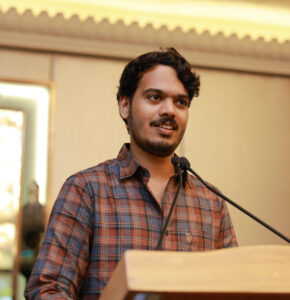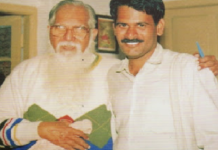 Dear Jeyamohan,
Dear Jeyamohan,
I came across the announcement about the Western Philosophy Introductory class on your website. Although my primary interest is in Indian philosophy and history, I think my ignorance of Western philosophy is sufficient to qualify me for this class. Also, I can see how Western philosophy is shaping the modern way of life around us. Therefore, I am confident that this session will be beneficial to me.
I would like to know more details about joining this class.
Despite my limited knowledge in Western philosophy, I am eager to prepare for the session if necessary. Please let me know if there is any such introductory reading.
I would also like to take this opportunity to inform you that I am looking forward to joining the Introductory Indian Philosophy class. Like me, most students of art and design education perceive a lack of emphasis on philosophy and aesthetics in our curriculum. Students in disciplines such as architecture and industrial design, which heavily rely on market demand, bear the brunt of this.
In my opinion, there is a decline in original thinking and an increase in the focus on consumer service. As a personal solution, I have decided to learn more about philosophy and aesthetics. I hope that many others will share my enthusiasm.
I know that conducting introductory classes repeatedly can attract more people than serious students. Thank you for another opportunity to write a letter in Tamil.
I await your response.
Vivek
Dear Vivek
Introduction classes in Western philosophy offer a comprehensive overview of the field. They teach us what kind of quest for knowledge has taken place in Europe from the Greek tradition to Noam Chomsky.
Books can indeed teach us these things. However, an in-person class is equal to a 300-page book in this field. Moreover, books cannot provide the comprehensive understanding that comes from three days of focused study. Due to our learning environment, feeling like we’ve come for it, and friends circle, this happens.
Learning philosophy as a subject or as a collection of information is not particularly beneficial for anyone outside of academia. The best way to understand philosophy is to approach it as life’s questions, or problems. Naturally, this approach is also highly engaging. Thinking about life and history in a philosophy class signifies that we are truly beginning to understand philosophy. That is the nature of our classes. Participants noted this uniqueness with enormous enthusiasm.
You are not required to have read any material prior to this class. Indeed, it is preferable to have no prior knowledge. Dispelling misconceptions is a major challenge in any philosophy class. A strong desire to learn and a mindset to associate it with life are sufficient. The questions posed by Western philosophy mirror the ones we encounter in our everyday lives today. Starting from there is the easiest way to move in.
J











